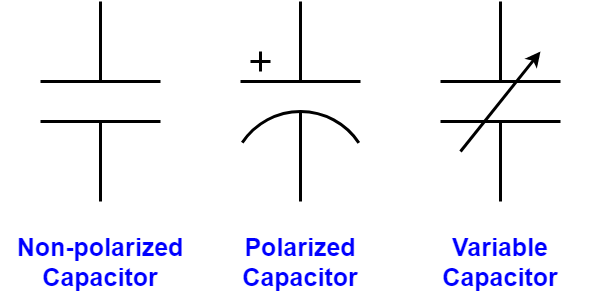Capacitors
Definition
A capacitor is a type of electrical device which stores charge, consisting of oppositely charged conductive surfaces separated by an insulator. They are commonly used in clock circuits and to reduce noise in electrical signals.
Capacitors can be polarised, which usually have a greater capacitance, however it means that they are not bi-directional.

How Capacitors Work
When there is a potential difference across a capacitor, one side of the capacitor is filled with electrons, making it negatively charged. Those electrons repel the electrons on the other side of the insulator, making it positively charged. The greater the potential difference, the more charge is stored in the capacitor. As electrons gather on the negative side of the capacitor, the electrostatic force eventually prevent any more electrons from being squeezed in, counteracting the force from the potential difference - at which point the capacitor is considered fully charged.
A charged capacitor can be discharged when it is connected to a circuit to power. The rate at which it discharges depends on the resistance of the load - the higher the resistance, the slower it discharges.
Formula
is the charge stored on the capacitor, in coulombs. is the capacitance of the capacitor, in farads. is the voltage (potential difference) across the capacitor.